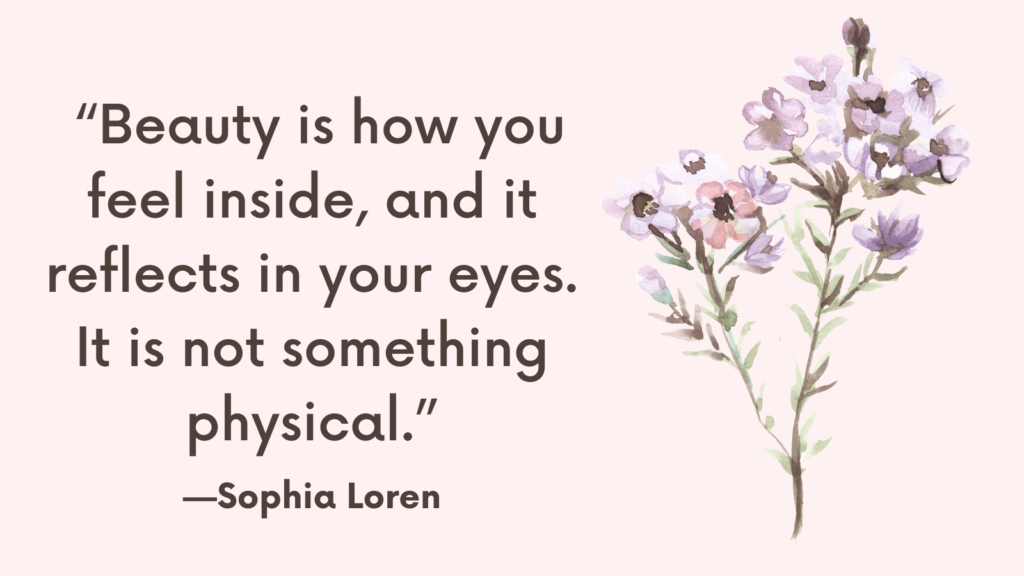In this post, you’ll learn the difference between self-image and self-esteem.
What Is Self Image?
Self-image refers to the mental picture or perception an individual holds about themselves.
It is the way we see ourselves, including our physical appearance, abilities, personality traits, and overall identity.
Self-image is subjective and can be influenced by various factors such as personal experiences, social interactions, cultural norms, and media representations.
Our self-image plays a crucial role in shaping our beliefs, behaviors, and emotions. It impacts our confidence, self-esteem, and how we perceive ourselves in relation to others.
A positive self-image involves having a realistic and accepting view of oneself, recognizing and valuing both strengths and weaknesses.
Self-image can be influenced by internal and external factors. Internal factors include our thoughts, beliefs, and emotions, while external factors encompass societal standards, peer feedback, and media portrayals.
Sometimes, individuals may develop a negative self-image due to comparisons with unrealistic ideals or negative experiences.
Related: What Is A Distorted Self Image & How To Build A Positive One?
What Is Self Esteem?
Self-esteem refers to the subjective evaluation and overall opinion an individual holds about their own worth, value, and abilities.
It reflects how positively or negatively one feels about themselves and plays a significant role in shaping thoughts, emotions, and behaviors.
Self-esteem can have a profound impact on various aspects of life, including relationships, work performance, and mental well-being.
Healthy self-esteem involves having a balanced and realistic view of oneself, acknowledging both strengths and areas for growth.
It is not about being perfect or superior to others but rather about recognizing one’s inherent worth as a human being.
Related: What Is A Distorted Self Image & How To Build A Positive One?
Self Image vs Self Esteem
Self-image and self-esteem are closely related but distinct concepts.
Self-image refers to the mental picture or perception an individual has of themselves, including their physical appearance, abilities, and personal qualities.
It involves how one sees oneself in relation to others and the world around them.
On the other hand, self-esteem is the evaluation and overall opinion an individual holds about their own worth, value, and abilities.
It reflects the level of confidence and positive regard one has for themselves.
While self-image focuses on the specific attributes and characteristics a person identifies with, self-esteem relates to the personal judgment and feelings associated with those attributes.
In simpler terms, self-image is more about how you perceive yourself, both physically and mentally, while self-esteem is about how you feel about yourself and your sense of self-worth.
It is important to note that self-image can influence self-esteem.
If someone has a negative perception of their physical appearance or believes they lack certain abilities or qualities, it can contribute to lower self-esteem.
Conversely, having a positive self-image can contribute to higher self-esteem.
Related: Best 10 Self Esteem Books

Conclusion
Self image and self-esteem are two closely related but distinct concepts that play a significant role in shaping an individual’s overall sense of self-worth.
Self image primarily focuses on the external aspects of oneself, such as physical appearance but it can also be influenced by internal factors such as intelligence or talents.
In contrast, self-esteem goes deeper into our core beliefs and intrinsic worth. It reflects our perception of our own value, regardless of external factors.
Embracing our individuality and valuing ourselves for who we truly are can lead to a more fulfilling and confident life.



